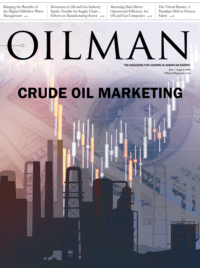Normalcy is a term we’ve all become accustomed to hearing in the news as we emerge from the pandemic lockdown. The oil and gas industry is also in the midst of finding normalcy, not only with the reduction in workforce as a result of COVID-19, but contending with the supply and demand pressure in the market. In a June 4th OPEC+ meeting, the 23-member group announced an extension of production cutbacks, minus Mexico, which indicated it is moving forward with plans to revive its oil industry. Nigeria and Iraq failed to meet production cuts set in April and committed to deeper cuts over the next three months.
Several operators in the U.S. shut in wells as a result of market volatility over the past several months. With travel and movement restrictions lifting, coupled with an improving job market, the demand for oil has increased slightly. All good signs of a recovery, especially after the price per barrel went negative in April; however, most oil and gas producers are not able to make a profit with WTI below $40 per barrel, the benchmark for U.S. crude. Industry experts believe that the oil futures price will not go negative again and expect to see the price per barrel in the $40 range for the remainder of 2020 and increasing to $50 in 2021, $55 in 2022 and reaching $65 in 2023.
In this issue of OILMAN, our feature article is about natural gas trading by Rebecca Ponton, the author of Breaking the Gas Ceiling: Women in the Offshore Oil and Gas Industry. There is also an interview with energy trading’s first female CEO, as well as a tribute to the late Ian Taylor, Chairman of Vitol, so make sure to read this multi-faceted, three-part feature.
The CEO of U.S. Energy Media, Emmanuel Sullivan is a technical writer who has built up his profile in the oil and gas industry. He lives and works in Houston, where he publishes Oilman and Oilwoman on a bimonthly basis, and Energies quarterly, distributing the magazine to energy thought leaders and professionals throughout the United States and around the world. At a time when technology is rapidly changing, he provides an invaluable service to oil & gas, and renewable energy executives, engineers, and managers, offering them both broad and specific looks at the topics that affect their livelihoods. Sullivan earned his BA in Communications at Thomas Edison State University and his MA in Professional Writing at Chatham University.






